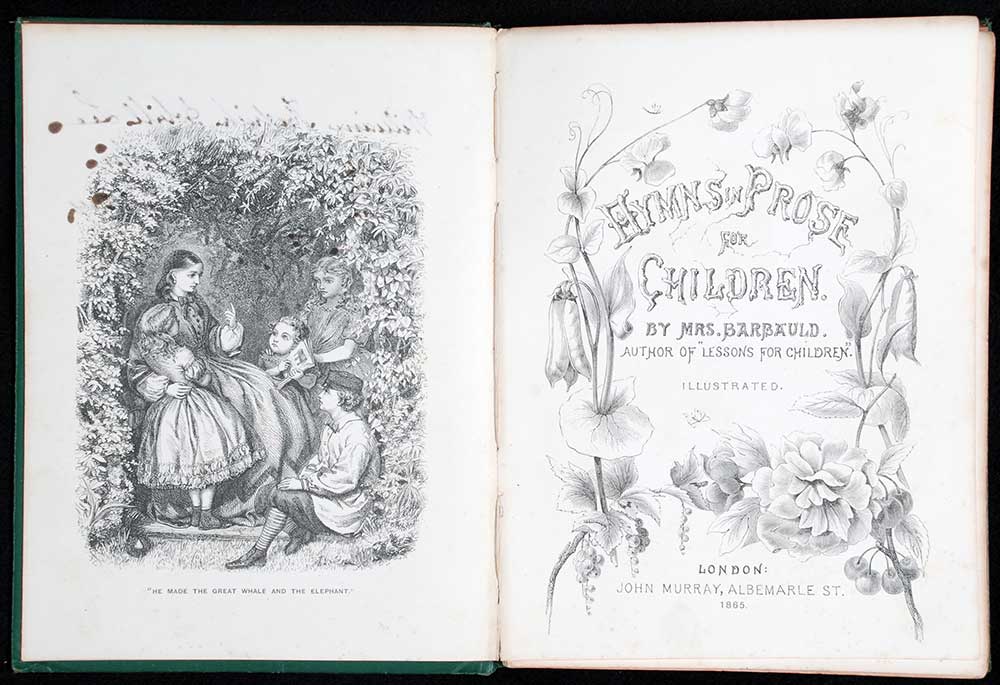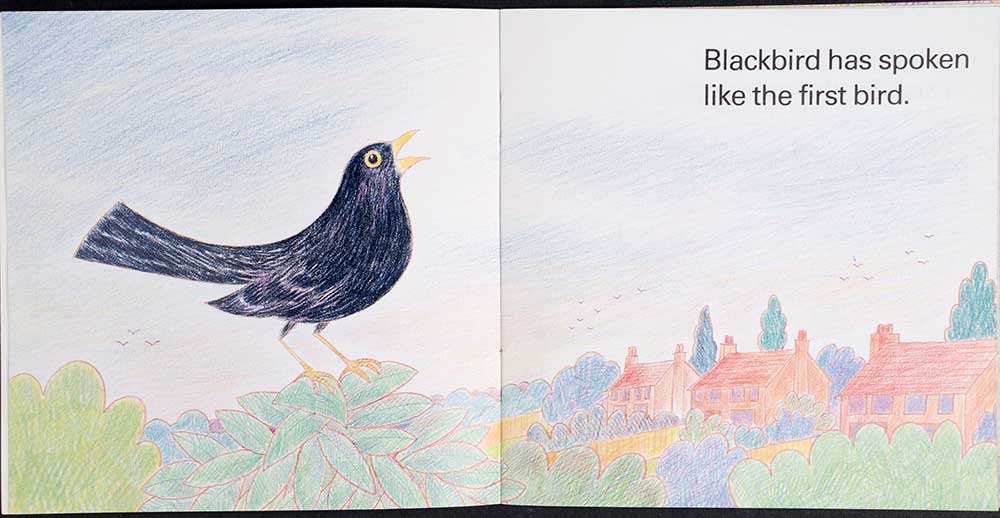Case 8
- Devotional Literature
![A.H. Reed (compiler). <em>My book of prayer and Maoriland hymns.</em> Wellington: A.H. & A.W. Reed, [1944]](https://www.reedgallery.co.nz/__data/assets/image/0018/525204/8a.jpg)
A.H. Reed (compiler). My book of prayer and Maoriland hymns. Wellington: A.H. & A.W. Reed, [1944]
This
prayer book for children compiled by A.H. Reed is a twentieth century New
Zealand example of a devotional work. He admonished the young reader: “Try to
remember that just saying words is not really praying. In praying we need to be
thoughtful, and mean what we say. And this little book is not meant to be like
a crutch that you have to lean on all the time, but like a sign-post to guide
you in the right way.”
![A.H. Reed (compiler). <em>My book of prayer and Maoriland hymns.</em> Wellington: A.H. & A.W. Reed, [1944]](https://www.reedgallery.co.nz/__data/assets/image/0018/525204/8a.jpg)
A.H. Reed (compiler). My book of prayer and Maoriland hymns. Wellington: A.H. & A.W. Reed, [1944]
Open image in new window

My little book of prayer. Wellington: A.H. & A.W. Reed, 1955.
My little book of prayer is a modified, miniature version
of the prayers found in My book of prayer
and Maoriland hymns.

Mrs Barbauld. Hymns in prose for children. Illustrated by James D. Cooper. London: John Murray, 1865.
Anna
Laetitia Barbauld (1743-1825) was a prominent English author who wrote in a
number of genres including poetry, essays and children’s literature. In her
preface to Hymns in prose for children,
first published in 1781, the author is concerned with the capacities of
children to read, understand, and appreciate religious material. She writes of
her intention to “impress devotional feelings as early as possible on the
infant mind … to lay the best foundation for practical devotion in future
life.” Barbauld’s children’s works were influential because she took the needs
and abilities of children into account, and wrote with the inviting,
conversational style found in this volume.

Mrs Barbauld. Hymns in prose for children. Illustrated by James D. Cooper. London: John Murray, 1865.
Open image in new window
![Ann Allan. <em>A child’s prayer.</em> Illustrated by Gwyneth Richardson. Wellington: A.H. & A.W. Reed, [1944]](https://www.reedgallery.co.nz/__data/assets/image/0003/525207/8d.jpg)
Ann Allan. A child’s prayer. Illustrated by Gwyneth Richardson. Wellington: A.H. & A.W. Reed, [1944]
This
devotional poem, written by Ann Allan (the pseudonym of Mrs Isabella Purvis
Brabyn) and illustrated by Gwyneth Richardson, comprises a young girl’s
thoughtful prayers spoken to God before bedtime.
![Ann Allan. <em>A child’s prayer.</em> Illustrated by Gwyneth Richardson. Wellington: A.H. & A.W. Reed, [1944]](https://www.reedgallery.co.nz/__data/assets/image/0003/525207/8d.jpg)
Ann Allan. A child’s prayer. Illustrated by Gwyneth Richardson. Wellington: A.H. & A.W. Reed, [1944]
Open image in new window

Eleanor Farjeon. Morning has broken. Illustrated by Gordon Stowell. Oxford: Mowbray, 1981.
A
children’s picture book based upon Eleanor Farjeon’s words to the hymn Morning has broken, originally published
in the hymn book Songs of praise
(1931). It was later published in Farjeon’s poetic anthology The children’s bells (1957), under the
title ‘A morning song – for the first day of spring’. Her poem achieved
international fame when recorded by the pop-folk artist Cat Stevens in 1971.
Clearly
a hymn for children, Morning has broken
praises God for the sights and sounds of the new day and likens each dawn to
the very first day in the Garden of Eden. This edition is part of a series of
small books featuring the texts of hymns and sacred songs accompanied by vivid
colour illustrations to appeal to younger children.
![A.H. Reed (compiler). <em>My book of prayer and Maoriland hymns.</em> Wellington: A.H. & A.W. Reed, [1944]](https://www.reedgallery.co.nz/__data/assets/image/0018/525204/8a.jpg)



![Ann Allan. <em>A child’s prayer.</em> Illustrated by Gwyneth Richardson. Wellington: A.H. & A.W. Reed, [1944]](https://www.reedgallery.co.nz/__data/assets/image/0003/525207/8d.jpg)
